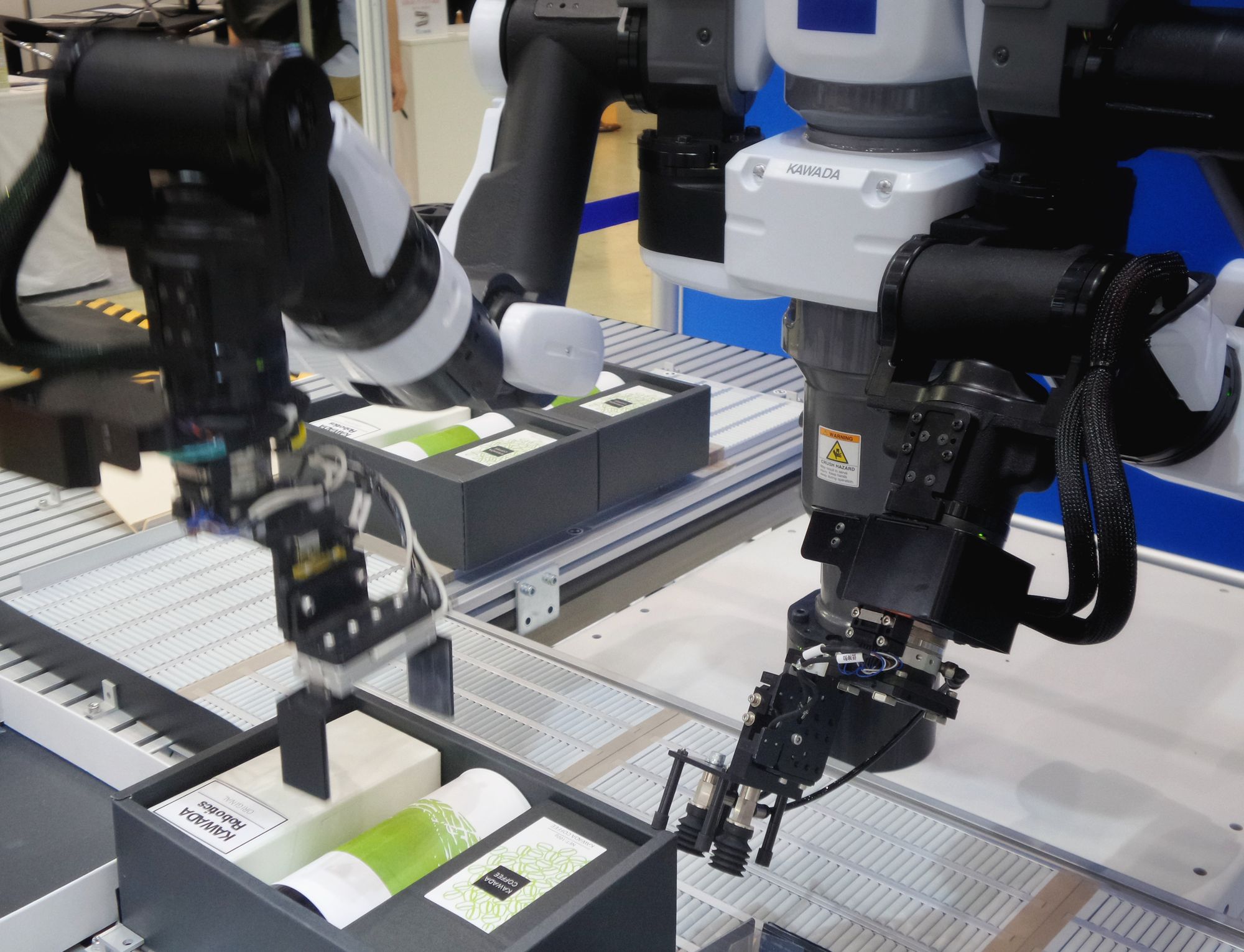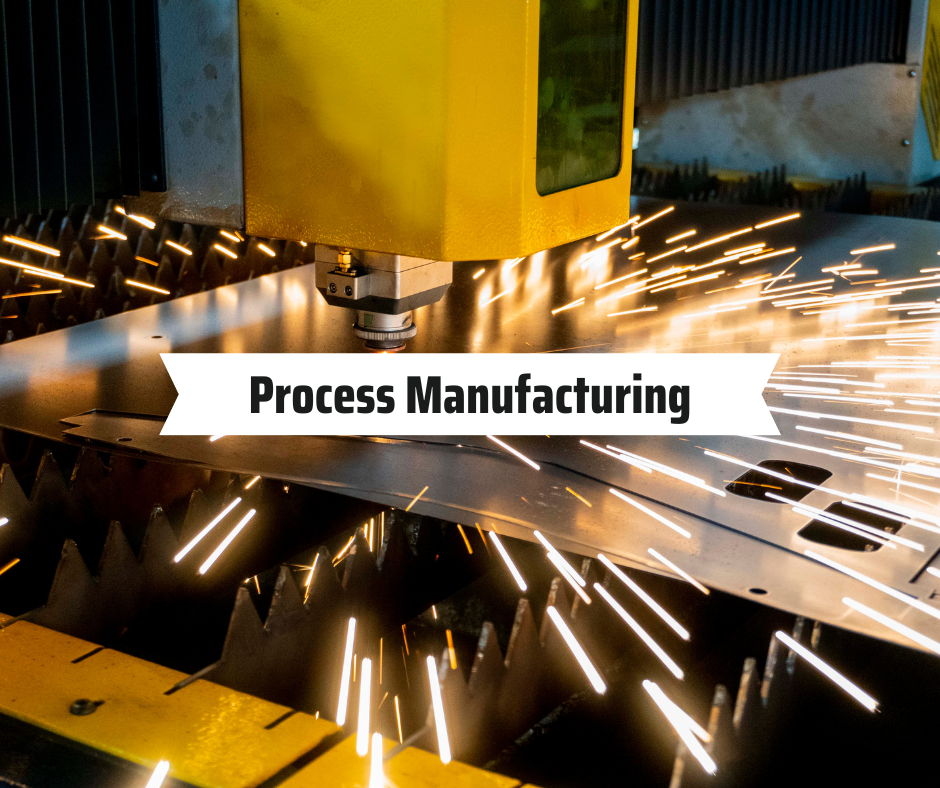A 2019 study by Deloitte found that more than half of manufacturers are already using data-driven insights to make decisions in the manufacturing process. In fact, this backed a 2018 research by McKinsey, which predicted that manufacturers could realize an average of 10-20% savings on their operations with the use of advanced analytics.
Additionally, a 2019 study by IndustryWeek found that 72% of manufacturers are using advanced analytics to improve cost efficiency and product quality. Lastly, a 2019 survey from BARC found that 64% of manufacturers are using predictive analytics and machine learning in their operations.

Thus, business intelligence in manufacturing is not only being used widely by manufacturing businesses across the globe, but it has also led to being highly beneficial for businesses that have implemented it. These benefits include a higher net profit ratio, net revenue, and returns on investment.
However, if you are a manufacturing business owner considering implementing business intelligence, then it is important that you have a complete understanding of it first.
This article will help you with that by covering the following topics:
- What is Business Intelligence?
- What is Manufacturing?
- How Can You Use Business Intelligence in Manufacturing?
- What are the 10 Benefits of Business Intelligence in Manufacturing?
- Features Business Intelligence System Must Have to be Best Fit for Manufacturing Businesses
- FAQs Related to Business Intelligence in Manufacturing
- How can Deskera Help You in the Implementation of Business Intelligence?
- Key Takeaways
- Related Articles
What is Business Intelligence?
Business intelligence (BI) is the process of collecting, analyzing, and presenting data to help organizations make better decisions.
The goal of BI is to turn raw data into useful information that can be used to identify trends, patterns, and insights that can inform strategic decision-making. This can include things like market research, financial analysis, and customer behavior analysis.
BI systems typically include a variety of tools, such as dashboards, reporting, and data visualization, that help users understand and interpret the data. These tools can be used to create interactive reports and charts that can be easily shared and understood by both technical and non-technical stakeholders.
One of the key benefits of BI is that it can help organizations identify areas where they can improve performance and efficiency. This can include things like identifying where costs can be reduced, identifying new revenue streams, or improving customer satisfaction. This will lead to reduced cost of goods manufactured and improved customer retention as well as increased customer loyalty.
Another key benefit of BI is that it can help organizations make data-driven decisions. By providing a clear and comprehensive view of the data, BI can help decision-makers understand the implications of their choices and make informed decisions based on the data.
Thus, BI systems can be used to identify trends and patterns in customer behavior, to track the performance of business processes, and to identify areas of improvement. BI systems can also be used to monitor customer feedback and identify customer pain points, as well as to identify potential opportunities for growth.
Overall, business intelligence is a powerful tool that can help organizations gain a competitive edge by turning data into actionable insights. It can help organizations optimize their performance, make better decisions, and ultimately achieve their goals. This, in turn, will lead to improved operational metrics, business metrics, and financial statements.
What is Manufacturing?
Manufacturing is the process of converting raw materials into finished products using tools, machinery, and labor. It is a critical part of many industries, including automotive, aerospace, construction, and consumer goods.
There are many different types of manufacturing processes, including assembly line manufacturing, batch production, and mass customization. The choice of manufacturing process will depend on factors such as the type of product, the volume of production, and the level of customization required.
Manufacturing often involves the use of specialized equipment, such as CNC machines, 3D printers, and robots. These machines can be programmed to perform specific tasks, such as cutting, shaping, and assembling parts, to improve efficiency and quality.
Quality control is an important aspect of manufacturing, as it ensures that products meet the required specifications and standards. This can include things like testing, inspection, and measurement, to ensure that products are fit for their intended purpose. The higher the quality of your products, the more you will be able to encourage returning customers and, therefore, higher net profits.
Manufacturing has been greatly impacted by digitization and automation. This allows for better communication, control, and data collection of the production process, improving the efficiency, quality, and safety of the manufacturing process. In fact, it also leads to more efficient production planning and scheduling, as well as shop floor scheduling.
Overall, manufacturing is a complex and multi-disciplinary process that involves the conversion of raw materials into finished products. It requires the use of specialized equipment, skilled labor, and quality control to ensure that products meet the required specifications and standards.
How Can You Use Business Intelligence in Manufacturing?
Business Intelligence (BI) in manufacturing refers to the use of data, analytics, and reporting tools to support decision-making and optimize the performance of manufacturing operations.
In manufacturing, BI can be used to track key performance indicators (KPIs) such as production efficiency, quality, and costs. This can help manufacturers identify areas where they can improve performance, reduce manufacturing costs, and increase efficiency.
BI can also be used to monitor and analyze supply chain data, such as inventory levels, lead times, and supplier performance. This can help manufacturers identify potential bottlenecks, improve supplier relationships, and optimize inventory levels. It will also help manufacturers have an efficient inventory management and warehouse management system in place.
By using BI, manufacturers can gain real-time visibility into their operations, which can help them make data-driven decisions and respond quickly to changing market conditions.
For example, manufacturers can use BI to identify trends and patterns in customer demand, allowing them to adjust production schedules and optimize inventory levels.
This will increase the accuracy of your demand planning, as well as master production schedules. It will also help you accurately determine the safety stock levels needed by your business.
Another important aspect of BI in manufacturing is predictive maintenance, using data from sensors and other sources, predictive analytics can be used to predict when a piece of equipment is likely to fail. This can help manufacturers schedule maintenance in advance, reducing downtime and improving overall equipment effectiveness.
BI can also be used to track safety data and identify potential hazards. This will help manufacturers make improvements to their processes and improve overall safety. This will also help manufacturers in keeping their business expenses in check, therefore ensuring that there is no undue pressure on your working capital.
Overall, business Intelligence in manufacturing is the process of using data and analytics to gain a deeper understanding of manufacturing operations, identify opportunities for improvement, and make data-driven decisions that can help optimize performance and drive business growth.
What are the 10 Benefits of Business Intelligence in Manufacturing?
Global firms produce 7.5 septillion terabytes of data every single day. The manufacturing sector produces enormous amounts of data about its production capacities, delivery schedules, supply chain management, and other topics.
Only 45% of this data, according to experts, is actually utilized, which presents a chance to learn even more about business operations and procedures.
Business intelligence helps you make better short- and long-term operational decisions by utilizing all the data created by your manufacturing business. Here are ten of the most significant reasons to use BI in your manufacturing organization:
Improved Efficiency
Business intelligence in manufacturing can help businesses become more efficient. By providing data-backed insights, manufacturers can identify and eliminate unnecessary processes, freeing up resources for more productive activities. Thus, these insights will help in resource capacity planning such that gross profits are maximized.
This includes automating manual processes and identifying areas of waste. Detailed reporting can also provide insight into areas of inefficiency, allowing manufacturers to optimize their production processes.
Improved Decision Making
Business intelligence in manufacturing can provide data-driven insights to support better decision-making. Manufacturers can use data to identify trends, examine products and processes, and gain a better understanding of the overall performance of their operations.
This helps businesses make informed decisions that can lead to improved efficiency and better customer service. This will also help in improving the cash flow of the manufacturer.
Increased Productivity
Manufacturers can use business intelligence to increase their productivity. By analyzing data, they can identify areas of inefficiency and focus on improving those areas. This can result in a more streamlined production process, leading to increased output and improved profitability.
Reduced Costs
Business intelligence in manufacturing can help manufacturers reduce costs. By leveraging data-driven insights, they can identify areas of waste and inefficiency, resulting in cost savings. Additionally, manufacturers can use data to make more informed purchasing decisions, resulting in better prices for their supplies.
Improved Quality
By using business intelligence, manufacturers can ensure that their products meet customer expectations. By leveraging data-driven insights, they can better understand how their products are performing and identify areas of improvement. This can help them ensure that their products meet customer quality standards, leading to positive brand awareness.
Streamlined Processes
Business intelligence can help manufacturers streamline their processes. By leveraging data-driven insights, they can identify areas of inefficiency and automate manual processes. This can result in a more streamlined production process, leading to improved efficiency and better customer service.
Improved Customer Service
Business intelligence in manufacturing can help manufacturers improve their customer service. By analyzing data, they can identify areas of improvement and better understand customer needs. This can lead to improved customer satisfaction, resulting in higher sales and better customer loyalty.
Predictive Analysis
Business intelligence in manufacturing can be used to predict future trends. By analyzing data, manufacturers can identify potential market opportunities and stay ahead of their competition. This can lead to improved profitability and better customer service.
Risk Management
Manufacturers can use business intelligence to better manage their risks. By leveraging data-driven insights, they can identify potential risks and develop strategies to mitigate them. This can help them stay ahead of potential problems, ensuring the continued success of their operations.
Improved Competitiveness
Business intelligence in manufacturing can help manufacturers stay competitive in the market. By providing data-backed insights, they can identify areas of improvement and make informed decisions that can lead to improved efficiency and better customer service. This can help them stay ahead of their competition and ensure their success in the long run.
Features Business Intelligence System Must Have to be Best Fit for Manufacturing Businesses
When choosing Business Intelligence (BI) software for your manufacturing business, there are a number of features that you should consider to ensure that it is the best fit for your organization and that it drives business growth. These features are:
Data Integration
The software should be able to integrate with your existing systems and data sources, such as ERP, MES, and PLM, to provide a complete view of your operations.
Real-Time Data
The software should provide real-time data, allowing you to monitor and analyze your operations in near real-time, and make data-driven decisions.
Scalability
The software should be scalable and able to handle the data volume and complexity of your operations as your business grows.
Customizable Dashboards and Reporting
The software should have customizable dashboards and reporting capabilities, allowing you to create reports and visualizations that meet your specific needs.
Predictive Analytics
The software should include predictive analytics capabilities, allowing you to predict equipment failures, production issues, or other events before they occur.
Quality Control Tools
The software should include tools for monitoring and analyzing quality control data, such as test results and inspection reports.
Inventory Management Tools
The software should include tools for monitoring and analyzing inventory levels, lead times, and supplier performance.
Safety Monitoring Tools
The software should include tools for monitoring and analyzing safety data, allowing you to identify potential hazards and improve overall safety.
Integration with IoT
The software should have the capability of integrating with IoT devices, such as sensors and cameras, to collect and analyze data from the shop floor.
Mobile Access
The software should be accessible via mobile devices, allowing you to monitor and analyze your operations on the go.
FAQs Related to Business Intelligence in Manufacturing
- What is Business Intelligence in Manufacturing?
Business intelligence in manufacturing is the process of collecting, analyzing, and interpreting data from various sources to inform decisions and strategies for the manufacturing process. It helps to track production and performance, identify areas of improvement, and make more informed decisions.
- What are the Benefits of Business Intelligence in Manufacturing?
Business intelligence in manufacturing can help streamline operations, reduce costs, and improve product quality. Additionally, it can help identify potential opportunities and areas of improvement.
- What are the Different Types of Business Intelligence in Manufacturing?
There are several types of business intelligence in manufacturing, including predictive analytics, descriptive analytics, prescriptive analytics, and visual analytics.
- How Can Business Intelligence in Manufacturing Improve Performance?
Business intelligence in manufacturing can help improve performance by providing insights into areas of improvement, allowing for better decision-making, and identifying opportunities for increased efficiency.
- How Can Business Intelligence in Manufacturing Help Reduce Costs?
Business intelligence in manufacturing can help reduce costs by identifying areas of inefficiency and providing insights into areas of improvement. It can also help identify potential cost savings opportunities.
- What Types of Data Can Business Intelligence in Manufacturing Analyze?
Business intelligence in manufacturing can analyze a variety of data, such as financial, operational, and customer data.
- How Can Business Intelligence in Manufacturing Improve Product Quality?
Business intelligence in manufacturing can help improve product quality by providing insights into areas of improvement, allowing for better decision-making, and identifying potential opportunities for increased efficiency.
- How Can Business Intelligence in Manufacturing Increase Efficiency?
Business intelligence in manufacturing can help increase efficiency by providing insights into areas of improvement, allowing for better decision-making, and identifying potential opportunities for increased efficiency.
- What is the Difference Between Business Intelligence and Business Analytics?
Business intelligence is the process of collecting, analyzing, and interpreting data from various sources to inform decisions and strategies. Business analytics is the application of statistical analysis, data mining, and machine learning techniques to improve business performance.
- How Can Business Intelligence in Manufacturing Help Make More Informed Decisions?
Business intelligence in manufacturing can help make more informed decisions by providing insights into areas of improvement, allowing for better decision-making, and identifying potential opportunities for increased efficiency.
How can Deskera Help You in the Implementation of Business Intelligence?
Deskera can help you in the implementation of business intelligence by providing you with a comprehensive suite of business intelligence solutions. This suite consists of Deskera Books, Deskera CRM, Deskera People, and Deskera MRP.
Deskera's business intelligence solutions provide you with the ability to analyze data, uncover insights, and make informed decisions. Deskera's solutions enable you to analyze data from multiple sources, create interactive dashboards, and generate detailed reports.
Additionally, Deskera's solutions offer powerful predictive analytics capabilities, allowing you to identify trends, assess the impact of decisions, and forecast future outcomes. In fact, Deskera has also made it easy and convenient for you to export your existing data from different sources to its platform.
Key Takeaways
Business Intelligence (BI) in manufacturing refers to the use of data, analytics, and reporting tools to support decision-making and optimize the performance of manufacturing operations.
BI is being used more and more in manufacturing processes. Manufacturing operations and BI integration are bringing up new growth opportunities for the sector. With the help of business intelligence, you can move your company forward by making use of the resources you already have.
The ten benefits of business intelligence in manufacturing are:
- Improved efficiency
- Improved decision making
- Increased productivity
- Reduced costs
- Improved quality
- Streamlined processes
- Improved customer service
- Predictive analysis
- Risk management
- Improved competitiveness
Some of the features that a business intelligence system must have to be the best fit for your manufacturing businesses are:
- Data integration
- Real-time data
- Scalability
- Customizable dashboards and reporting
- Predictive analytics
- Quality control tools
- Inventory management tools
- Safety monitoring tools
- Integration with IoT
- Mobile access
Thus, implementing a business intelligence system like Deskera will make your manufacturing business more productive and profitable.
Related Articles













